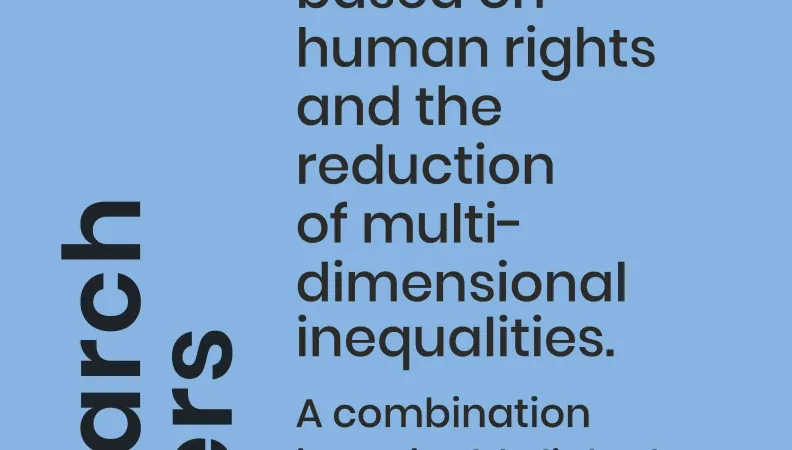Share the page
The approach based on human rights and the reduction of multidimensional inequalities. A combination inextricably linked with the achievement of the 2030 Agenda
Published on

This study examines how human rights can guide a form of development that gives priority to improving the well-being of populations, while contributing to the ecological transformation - a form of development focused much less on growing monetary wealth, and paying much more attention to social justice and the need to reduce resource use and the production of waste, including greenhouse gases. Economic growth, measured as the increase of gross domestic product, has long guided public policy choices in the macroeconomic and monetary areas. It has also impacted fiscal reform, encouragement to international trade or foreign investment, employment market reforms, or social investment in education or health. Everything, until recently, seemed to have to be tested against the impacts of our choices on the prospects of growth. The 2030 Agenda for Sustainable Development proposes to change course. The reference to human rights can contribute to this objective. They are like the mast to which Ulysses asks to be tied, in order to be able to resist the songs of the Sirens...
Useful Information
-
Authors
-
Olivier DE SCHUTTER
-
Coordinators
-
Farid LAMARA, Serge Rabier
-
Edition
-
260
-
Page number
-
68
-
ISSN
-
2492 - 2846
-
Collection
-
Research Papers
